Omori

| a game by | OMOCAT, LLC |
| Platform: | PC (2020) |
| Editor Rating: | 8.7/10, based on 3 reviews, 2 reviews are shown |
| User Rating: | 7.5/10 - 60 votes |
| Rate this game: | |
| See also: | Horror Games, Best Indie Games, Psychological Horror Games, Hand-Drawn Games, RPG Maker Games, Games Like Oneshot, Games Like Undertale, Games Like Child of Light, Games Like Earthbound, Games Like Octopath Traveler |
If you've ever read into the Omori webcomics, you'll know that sometimes they don't sit well with the mind. Maybe that's just a personal preference - but they are always a bit eerie and unsettling to me. The concept, however, sets a magnificent undertone for a video game. Developers Omocat has exploited that notion - and aimed high to create and psychological horror RPG.
Here we have an indie release that capitalizes on the popularity of stripped-down, pixelated games - sending players into euphoric nostalgia of Game Boy titles. The fusion of Omori lore into a playable setting sets the potential for a great game here - and the indie team pressure usually delivers. Let's have a look at the outcome.
Take a Trip to the Dark Side
I'm happy to say that the ideas and concepts behind the narrative of Omori have been executed flawlessly into a video game format. While the initial story may confuse, playing through the first sections become quite the tale that defines fears, emotions, and challenges of the human experience. The premise revolves around Omori, who faces a change of his usual set of friends going their separate ways. The game follows a retreat to his head where he will battle his own internal demons, seamlessly transitioning to the classical RPG mechanics.
Within the beautifully colored world of Omori, you'll travel through the world solving puzzles, doing side-quests, and gaining upgrades and inventory. There will also be numerous battles you and your imaginary friends will have to face. Most of the game follows the top-down perspective familiar to old Game Boy RPGs and turn-based battle systems that will need a tactical approach to overcome.
The concept of Omori always unsettled me - but the stories, lore, and ideas are so well integrated it's hard to find anything unplayable. The visuals exploit nostalgia with a superior flair - adding ethereal color-palettes and flowing gameplay. Even when there are bizarre transitions between pixels and hand-drawn battle scenes.
It's Beautiful
It's been a while since I played a game quite like Omori. How it's been delivered focuses all the best qualities of the narrative into a very palatable experience. For a game that doesn't present an idea of what it's about to an unsuspecting player - it's remarkably immersive.
There's clearly been a lot of thought put into this. How the gameplay synchronizes with the underlying features of the comics is unbelievable.
Omori does take influence from indie successes like Undertale - following similar core structures in battle scenes and tactics. The transitioning between gameplay styles, however, is unique. It's always a risk when you fuse varying elements together like this - as it could present as a total mess. Not Omori, though - it works on all levels. Apart from areas where you feel the game is dragged out on purpose - it's brilliant.
Pros:
- Concepts of the comics are well-developed with video game mechanics
- Challenging throughout while accessible
- The storyline is incredible immersive
Cons:
- Some side-missions and puzzles seem difficult for the sake of extending the game time
Download Omori

System requirements:
- PC compatible
- Operating systems: Windows 10/Windows 8/Windows 7/2000/Vista/WinXP
Game Reviews
Explore the mind of a troubled young man in Omori, an ominous adventure that highlights the importance of mental health. As you jump between two very different worlds, you'll make new friends and confront the inner fears of a boy named Sunny. Unlike other bright and happy RPGs, Omori embraces the dark and disturbing parts of reality, forcing players to tackle tough secrets in their quest for the truth. With multiple endings, inventive design, and memorable characters and moments, Omori is a game that will surprise you in several ways.
Main Game Features
- Chilling dual-world story
- Turn-based combat with a twist
- Multiple endings based on your choices
Story
In Omori, you control Sunny, a silent shut-in who isolates himself from others due to severe social anxiety. To make matters worse, Sunny and his mother are moving homes soon, causing Sunny's dread to worsen. However, when Sunny enters a dream-like world called the Headspace, he takes on a new identity as Omori. Through this unique perspective, Sunny must overcome his literal nightmares and come to terms with the upcoming change of scenery. At the start of the game, Sunny awakens in the middle of the night after a trip to the Headspace, and is overcome with frightening hallucinations. Choosing to return to the safety of sleep, he becomes Omori, and must work with his dreamworld companions to rescue their friend, Basil.
During the game, you can make several choices that impact both the story and the ultimate ending. The story often jumps between the real world and the Headspace, and where you put your focus will alter the outcome of Sunny's adventure. Taking inspiration from horror games like Silent Hill, Omori is a dark story that's all about uncovering trauma and owning up to the truth. There are three different endings in total, some of which can be very dark and disturbing, especially given the game's subject matter. Overall, the story is interesting and keeps you on the edge of your seat, but it can be a very depressing adventure depending on the choices you make.
Gameplay
Omori is played from both a sidescrolling and top-down perspective, similar to games like Chrono Trigger and Undertale. When you are in the real world, you control Sunny as you move around the house, interact with characters, and watch cutscenes. Sunny can earn money and buy a few items at different points in the story, but the real game begins when you enter the Headspace. Here, Omori is joined by several party members, including his friends Kel, Aubrey, and Hero. Each character has significant strengths, making some better for dealing damage, while others are best used to support the team. As you explore and complete quests and challenges, you'll earn Clams, which can be used to purchase valuable weapons and gear.
The battle system in Omori is a very simple turn-based affair, much like the early Final Fantasy games, where characters can attack, use skills and items, or defend on their turn. In some cases, multiple party members can combine their efforts for team attacks, which deal lots of damage. The most interesting part of Omori's combat comes from status effects, which are different from what you'd expect. Instead of common status ailments like poison, sleep, and paralysis, Omori uses an emotion-based system. During battle, characters alter between Happy, Sad, Angry, and Neutral emotions, each with its own benefits and detriments. Understanding how to change your party's emotions for the best outcome is a cool change of pace and one that fits with the story well. Generally speaking, combat and exploration in Omori is very enjoyable, although some tactics make battles far too easy.
Conclusion
Omori takes the RPG formula and uses it to tell a dark story about mental trauma, while using its themes in both combat and overall gameplay. While the graphics are definitely old school, the art design is impressive and memorable areas wait around every turn.
The dual-world concept is used to great effect, with both the real world and Headspace offering interesting aspects. We highly recommend you try out Omori, especially if you're looking for an RPG that's different than the rest.
Pros
- Graphics are both beautiful and disturbing
- Cool ideas with the combat system
- Great story with an important message
Cons
- Combat is too easy most of the time
- Might be upsetting for some players
- Story starts out slow and has some boring sections
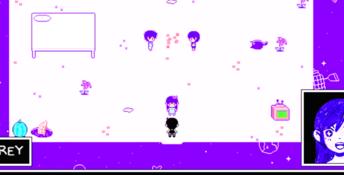
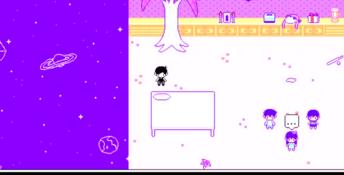
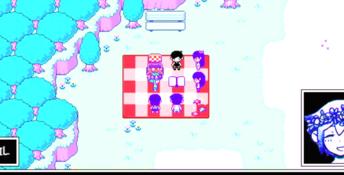
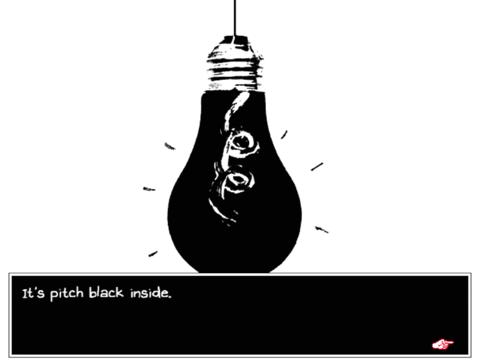
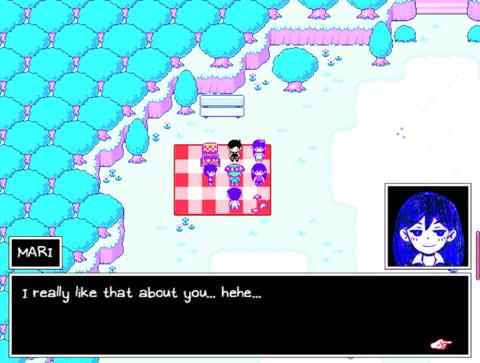
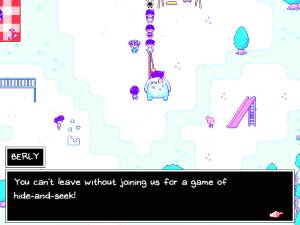

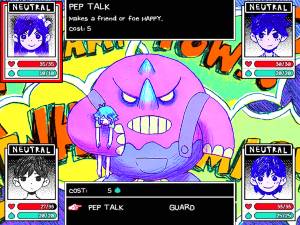



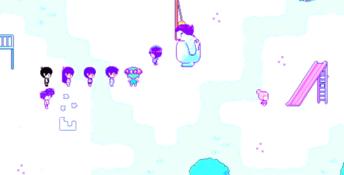
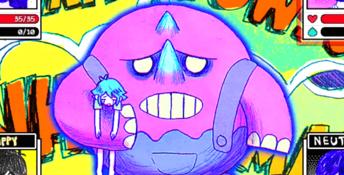
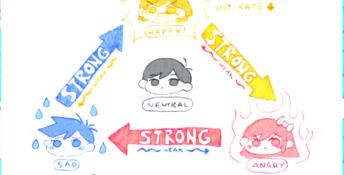

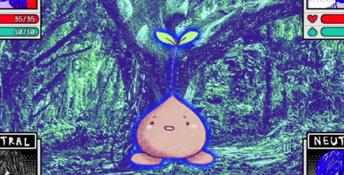
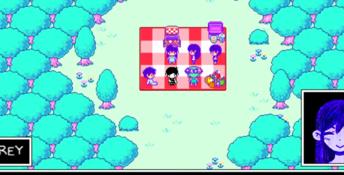
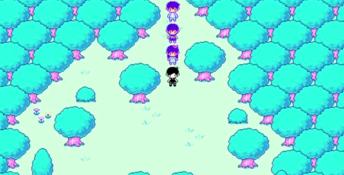
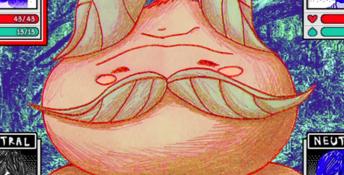
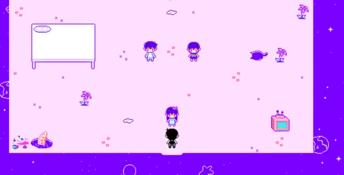

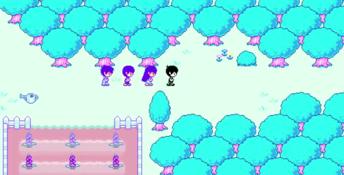
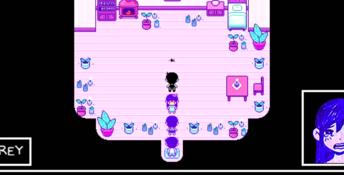
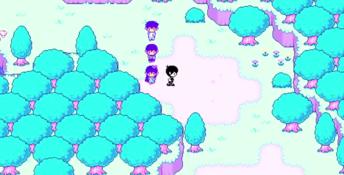
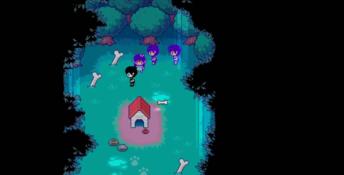
 Doki Doki Literature Club
Doki Doki Literature Club
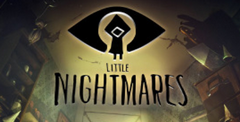 Little Nightmares
Little Nightmares
 Lucius
Lucius
 Pacify
Pacify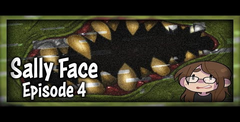 Sally Face Episode 4
Sally Face Episode 4
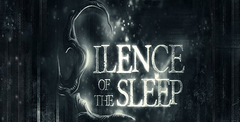 Silence of the Sleep
Silence of the Sleep
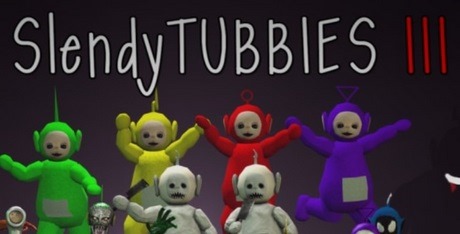 Slendytubbies 3
Slendytubbies 3
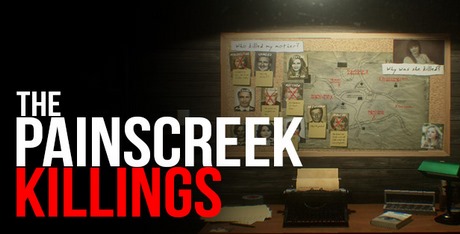 The Painscreek Killings
The Painscreek Killings